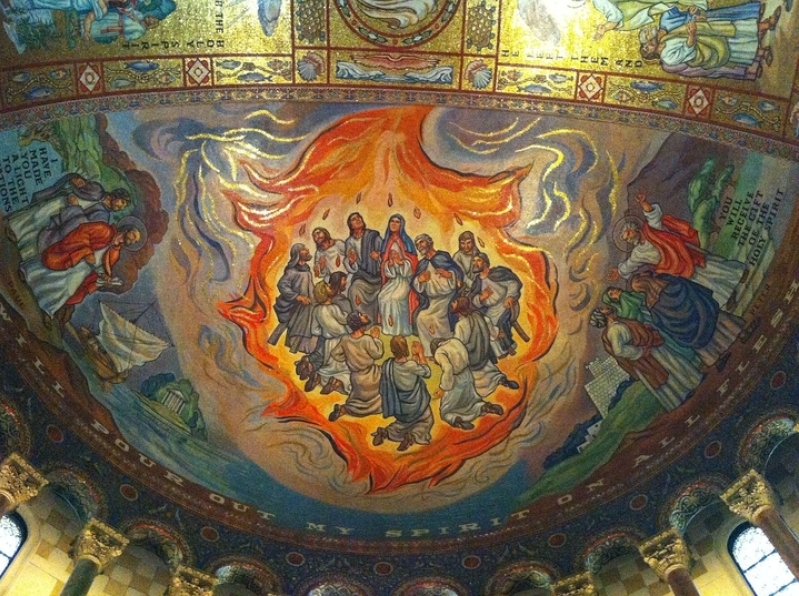
For Christians, Pentecost - which falls this coming Sunday - is one of the most important days of the year. While it's not as well known as Easter or Christmas, Pentecost represents one of the most significant events to take place in the New Testament: The descent of the Holy Spirit upon the Apostles and other followers of Jesus Christ.
The events that occurred on the day of the Pentecost are recorded in Acts Chapter 2: "And when the day of Pentecost had come, [the first followers of Jesus] were all together in one place."
Suddenly, a sound came from heaven, like a strong wind, filling the house where the people had gathered. Something like tongues of fire rested on their heads.
"And they were all filled with the Holy Spirit and began to speak in other languages as the Spirit gave them the ability to speak" (2:4).
After he was filled with the Spirit, the apostle Peter preached his first sermon and urged the crowds to repent, to believe in Jesus Christ as their Messiah and to receive the gift of the Holy Spirit. Amazingly, over 3,000 people, both Jews and Gentiles, were "cut to the heart" and baptized that day, thus marking the birth of the early church.
But that happened years ago. So, why should Christians today celebrate Pentecost?
In a blog post for DesiringGod, Ryan Griffith, Professor, Bethlehem College & Seminary, shares three reasons every Christian should celebrate this sacred day.
First, he explains that Pentecost fulfills Jesus's promise to never forsake his own: "The fulfillment of the promise of Jesus was the outpouring of the gift of the Holy Spirit on the disciples and, as Peter proclaimed, on all of God's people in this new era."
Thus, the promises of the new covenant are ours through the indwelling Spirit: "Jesus did not end his work on earth with the ascension - he continues it now through his Spirit-indwelt church. We, therefore, can take fresh courage in Jesus's words, 'Behold, I will be with you always, even to the end of the age.'"
Second, the Pentecost launched the global proclamation of the gospel, according to Griffith.
"The three thousand souls added to the church on Pentecost hailed from all corners of the Roman world. They, in turn, would carry the gospel to their families and communities. The narrative arc of Acts follows the Spirit-indwelt disciples as they carry the gospel from Jerusalem to the ends of the earth," he explains.
"You heard about Easter because of Pentecost. The fields are white with harvest and, as part of the church of the risen Christ, we too can 'go, therefore, and make disciples' (Matthew 28:18)."
Third, Pentecost signals the coming of fuller restoration and a greater celebration.
"While Jesus's reign is secure and eternal, it has yet to come to its fullest expression on the earth," writes Griffith. "While death has been decisively defeated, it has yet to be put to a final end. Paul reminds us that creation longs for its final restoration and that even we ourselves, who 'have the firstfruits of the Spirit, groan inwardly as we wait eagerly for adoption as sons, the redemption of our bodies' (Romans 8:23)."
He adds, "Pentecost is a pointer that history is inexorably moving towards the restoration of all things. The bridegroom has come; his bride is making herself ready. We await the greatest celebration of all."






